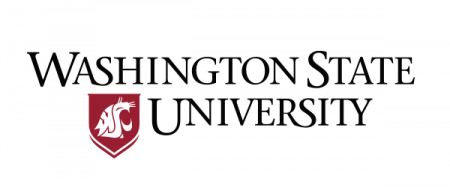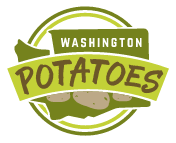2024 WASHINGTON STATE COMMERCIAL SEED LOT PROFILE AND POTATO FIELD DAY PREVIEW


2024 WASHINGTON STATE COMMERCIAL SEED LOT PROFILE
AND POTATO FIELD DAY PREVIEW
MARK PAVEK, ZACH HOLDEN, TIM WATERS, CARRIE WOHLEB,
RAUL GARZA JR. AND VITO CANTU
WASHINGTON STATE UNIVERSITY
Washington State University has conducted the Commercial Seed Lot Trial in cooperation with the Washington State Potato Commission and industry for 61 years (1961-78, 1982-2024). We incorporate a virus/disease reading training session into our program as a routine requirement prior to the first field reading. The goal of the training session is to improve our plant-reading accuracy by training the unexperienced and fine-tuning the expert. Plant disease experts from across the NW, including the Washington, Montana, and Oregon potato seed certification teams, continue to assist in the seed lot readings as well as the proof-readings. The results will be available online, following field day, under "2024 Washington Commercial Seed Lot Trials" at www.potatoes.wsu.edu.
Poor quality potato seed will impact commercial grower income. Major quality factors are disease, virus, herbicide damage, frost damage, and seed-piece handling. Commercial potato growers in Washington State typically purchase their seed potatoes from seed-growing regions which typically lie outside of Washington. For quality control, it is essential that each seed lot be grown under controlled conditions for approximately 70 days and evaluated by professionals. The Seed Lot Trial provides Washington potato growers, seed suppliers and handlers a side-by-side comparison of seed lots utilized by Washington commercial potato producers. The associated potato field day provides potato buyers and sellers an opportunity to observe performance of seed lots of common interest and discuss result. To improve field disease diagnostic skills, WSU, USDA, and potato industry personnel from across the western U.S. exchange ideas and share expertise on field diagnosis of disease symptoms and other seed tuber quality factors.
In the last six years, there has been a decline in the number of submitted seed lot samples. WA growers submitted 281 seed lots into the 2024 WA Commercial Seed Lot Trial, compared with 255 in 2023 (Figure 1, bars). Last year, WA growers planted 165,000 acres; acreage for 2024 has yet to be published. WA acreage typically fluctuates between 155,000 and 170,000 (Figure 1, dotted line).
Montana and Idaho provide WA growers with the most seed potatoes, followed by WA, OR, and CAN and other states (Figure 2). The composition of the 2024 Seed Lot Trial included 22% Clearwater Russet, 11% Umatilla Russet, 11% Russet Burbank, 30% “Other” (newer and/or non-mainstream varieties), 6% Alturas, 10% Ranger Russet, 6% Russet Norkotah and RN strains, and 4% Ivory Russet (Figure 3). The 2024 “Other” category was composed of 28 new, non-mainstream varieties, or specialty varieties, (compared with 21 in 2023 and 23 in 2022) ranging from newly released varieties like Mountain Gem Russet to older specialty varieties like Chieftain. Clearwater Russet seed lots increased dramatically since 2014 following McDonalds® acceptance of this variety for its french fries. The number of Clearwater Russet and Umatilla Russet seed lot samples surpassed those of Russet Burbank. Clearwater Russet accounted for 22% of seed lots in 2024, 20% in 2023, 20% in 2022, 19% in 2021, 24% in 2020, 17% in 2019, 12% in 2018, 7% in 2017, and 6% in 2016 and 4% in 2015 (Figure 3). Russet Burbank and Russet Norkotah seed lot numbers continue to slowly decline as markets change and newer varieties replace their acreage (Figure 3). Tri-State developed varieties like Clearwater Russet, Umatilla Russet, and Ranger Russet are slowing replacing Russet Burbank for french-fry processing.

Thirteen percent of all seed lots are European-developed potato varieties (data not shown). Varieties developed by the Northwest Potato Variety Development Program/PVMI accounted for 52% (55% in 2023 and 57% in 2022) of the seed lots entered into the 2024 trial and included: Alturas, Clearwater Russet, Mountain Gem Russet, Ranger Russet, Teton Russet, and Umatilla Russet. The most significant change in the WA seed lot profile in the past 50 plus years continues to be high number of varieties that WA growers are planting. In 1962, 8 varieties were entered into the seed lot; in 2024, there were 37 (Figure 4). The most varieties ever planted into the WA Seed Lot Trial was 52 in 2015 (Figure 4).
The potato field day program starts at 9:00 am on THURSDAY, June 27, 2024 at the WSU Othello Research Farm (1471 W Cox Rd, Othello, WA - see program below). As a special treat, attendees can participate in an interactive session centered around a Potato Virus Y demonstration trial. The PVY demo trial hosts 20 common potato varieties inoculated with 3 common strains of PVY planted next to healthy, comparison plants. Attendees will be able to view this year’s seed lots and participate in one of two concurrent sessions. Sessions I and II will allow you to view a sample of this year’s in-field research. Both sessions will offer CCA recertification credits; however, only session II (pest management tour) will offer WA, OR, and ID pesticide recertification credits. A hosted lunch, offered between 12:00 and 1:00 pm, will complete the field day. The agenda, seed lot information, and a map to the research center can be found on our website: www.potatoes.wsu.edu. For the program, see below.


